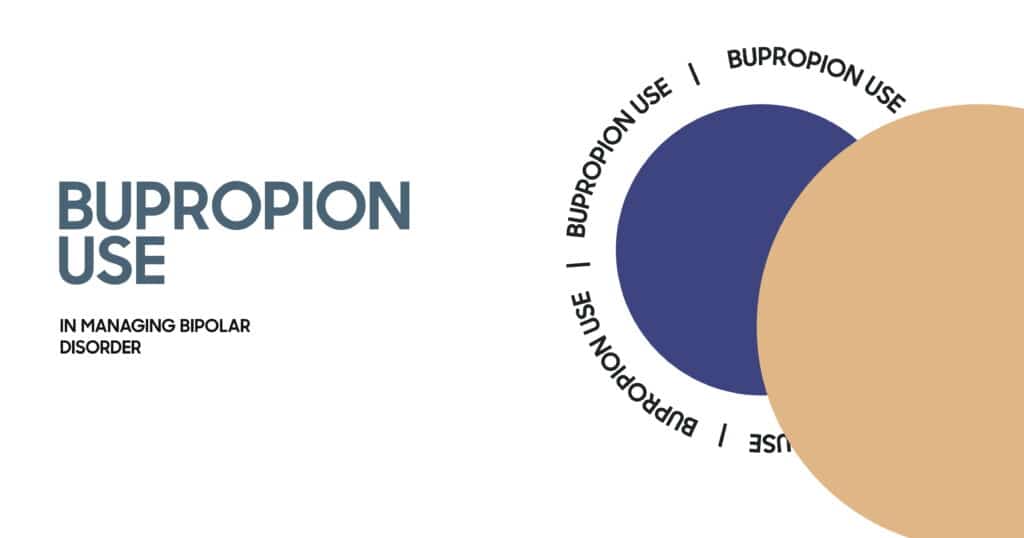Being a bipolar patient is like a ride on an uncertain roller coaster of emotions. To most people, the problem is not just how to cope with the excessive levels of mania but the devastating depths of depressive moods.
The balance and stability rely on the ability to find the correct medication. Bupropion bipolar treatment has become a subject of increased focus among patients and health practitioners – this is one of the preferred choices that exist.
Bupropion is known to give people who might not respond positively to conventional treatments a ray of hope due to its special antidepressant properties. This blog will discuss the mechanism of action of bupropion, its use in the management of bipolar disorder, and consider the risk factors and importance of an expert before commencing therapy.
Overview of Bupropion
Bupropion is a prescription drug that belongs to the group of atypical antidepressants. It is also the only antidepressant that mainly affects norepinephrine and dopamine, two neurotransmitters that are closely associated with energy and mood, as well as focus. Its distinctive profile renders it an attractive choice to individuals who require depression treatment and do not wish to experience unwanted side effects of other drugs, including weight gain or sexual dysfunction.
Common Uses and FDA Approvals
Bupropion has been approved by the U.S. Food and Drug Administration (FDA) as a treatment for several ailments, which include:
- Major Depressive Disorder (MDD). Assistance in the regulation of moods and energy levels.
- Seasonal Affective Disorder (SAD). Averting depressive symptoms during the darker winter season.
- Nicotine Craving Blocker. Bupropion (Zyban) is used to relieve nicotine cravings and withdrawal symptoms.
These approved uses by the FDA make bupropion a significant participant in the mental health therapy world.
Off-Label Applications in Mental Health
Bupropion, besides the official approvals, has been applied off-label to several psychiatric conditions. Other clinicians have used it in the treatment of attention-deficit/hyperactivity disorder (ADHD), anxiety disorders, and even in weight management.
Although these applications are not universally indicated, evidence and anecdotal experience can potentially be useful in the application of bupropion due to its general antidepressant action and its potential usefulness in the treatment of persons with variable mental health requirements.
For further information on off-label prescribing, the National Center for Biotechnology Information (NCBI) provides valuable research summaries.
Treat Mental Health Texas
How Bupropion Works in the Brain
In most antidepressants, the effect is to boost serotonin, whereas in bupropion, this is not the case. Rather, it blocks the uptake of norepinephrine and dopamine which are two important neurotransmitters, which are essential in motivation, pleasure, and alertness.
This dual effect assists in enhancing concentration, lessening fatigue and elevating the mood, devoid of the drying properties commonly attributed to serotonin-centered drugs.
Due to this action, bupropion is occasionally more tolerable and not as likely to produce emotional numbness as certain individuals tend to with selective serotonin reuptake inhibitors (SSRIs). This differentiation is what makes it interesting as far as managing bipolar disorder is concerned.

Bupropion’s Role in Treating Bipolar Disorder
The bupropion bipolar treatment usually revolves around the fact that bupropion bipolar treatment treats the depressive component of the illness with less chance of inducing mania as compared to other antidepressants. However, its role is nuanced.
Use in Bipolar Depression
Compared to mania, bipolar depression can be more disabling and intractable, but the conventional antidepressants increase the chances of exacerbating mood swings or inducing mania. Studies indicate that bupropion can be used as an alternative.
- Clinical evidence suggests that bupropion is less apt than SSRIs to trigger mania.
- Patients note that they feel more energetic and motivated and have improved functioning.
- It has a favorable side effect profile that enables retention of adherence, which is essential in the management of bipolar disorders over time.
The National Institute of Mental Health (NIMH) highlights the importance of tailoring medication choices to individual patient needs, and bupropion may be a strong candidate for certain cases.
Considerations in Preventing Manic Episodes
Bupropion is not a solution in itself, despite its advantages. In treating bipolar depression, it is normally combined with a mood stabilizer to avoid the chances of mania. Bupropion can be used hand-in-hand with lithium, valproate, or atypical antipsychotics as a more balanced approach.
The aim is to alleviate the depressive symptoms without compromising on preventive measures against possible manic moods. This should be closely monitored by a psychiatrist.
Treat Mental Health Texas
Risks and Side Effects of Bupropion
Bupropion is associated with negative effects, as any drug is. Though a good number of individuals do not mind it, it is notable that people should be informed about potential side effects of medications. A quick comparison is done between common and serious risks below:
| Common Side Effects | Serious Side Effects (Seek Immediate Help) |
| Dry mouth | Seizures (especially at high doses) |
| Headaches | Severe allergic reactions |
| Insomnia | Worsening suicidal thoughts |
| Nausea | Hypertension (high blood pressure) |
| Anxiety or restlessness | Manic switch in bipolar disorder |
Because of these risks, patients must never start, stop, or adjust dosage without professional guidance.
Consultation and Considerations for Use
A careful assessment should be conducted prior to initiating bupropion bipolar treatment. Among the factors to be discussed with a healthcare provider are:
- Existing medications (to prevent hazardous drug interactions).
- A history of an eating disorder or seizures, as bupropion may elevate the risk of seizures.
- Previous experience with antidepressants and their side effects.
- A mood stabilizer should be added to minimize the possibility of mania.
An open, honest conversation with a psychiatrist is the cornerstone of safe and effective use. The Mayo Clinic has provided further reading on precautions and patient education.
Treat Mental Health, Texas: Compassionate Care for Bipolar Disorder Management
At Treat Mental Health Texas, we know that treating bipolar disorder goes beyond using the right medication. Our caring staff adopts a holistic care model that integrates mental health counseling, medication analysis, and personalized care to enable those people to resume control of their lives.
Be it depression therapy, managing the variable moods, or the fear of fallouts of manic outbursts, our experts will stand by you throughout the process. When either you or someone close to you is considering bupropion bipolar treatment, we are able to offer the professional expertise and caring nature that you require.
Contact us today at Treat Mental Health Texas to take the first step toward balance and recovery.

Treat Mental Health Texas
FAQs
What are the antidepressant effects of bupropion for bipolar disorder management?
Bupropion elevates dopamine and norepinephrine, which enhances mood, energy, and motivation. This qualifies it as a good alternative in the treatment of bipolar depression.
How does bupropion serve as a mood stabilizer in treating mood swings and manic episodes?
Bupropion in itself is not a mood stabilizer. But with the use of stabilizing drugs, it can decrease the depressive symptoms without causing a considerable increase in the chances of mania.
What should patients know about the risks and medication side effects of bupropion for depression treatment?
Patients should be aware of possible side effects such as lack of sleep, nausea, or restlessness, and severe complications such as seizures or manic switches. Safety is important and should be monitored by the medical practitioners.
How does bupropion compare to other medications used in bipolar disorder management?
Bupropion is less likely to cause mania in comparison to SSRIs. It is also less likely to be accompanied by sexual side effects, as well as diminished weight gain.
What role does mental health therapy play alongside bupropion in managing bipolar disorder?
Mental health therapy is a supplement to medication as it deals with lifestyle choices, coping mechanisms, and emotional stability to enable people to be stable in the long term.










